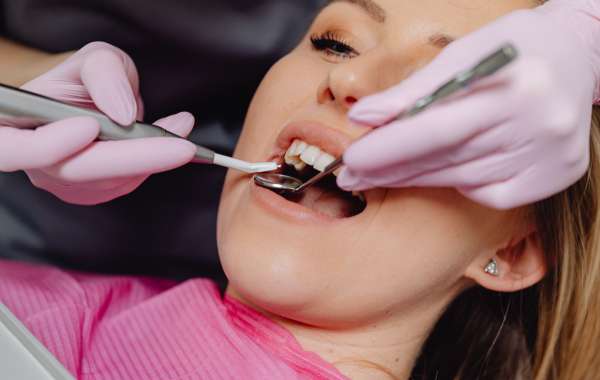This article will explore the role of an emergency dentist, the types of dental emergencies they handle, and the importance of seeking prompt care.
Understanding Dental Emergencies
What Constitutes a Dental Emergency?
A dental emergency is any oral health issue that requires immediate attention to prevent further damage, alleviate severe pain, or address life-threatening conditions. Unlike routine dental problems that can wait for a scheduled appointment, dental emergencies necessitate urgent care to avoid complications.
Common Types of Dental Emergencies
Severe Toothache: Sudden, intense tooth pain can be a sign of a serious underlying issue, such as an infection or abscess.
Knocked-Out Tooth: Also known as an avulsed tooth, this situation requires immediate action to increase the chances of saving the tooth.
Chipped or Broken Tooth: Accidents or biting down on something hard can cause teeth to crack or break.
Lost Filling or Crown: When a filling or crown falls out, it exposes the affected tooth to damage and infection.
Abscess: A painful infection at the root of a tooth or between the gums and a tooth.
Soft Tissue Injuries: Cuts or injuries to the gums, tongue, cheeks, or lips that may require stitches or other immediate care.
Broken Braces or Wires: Orthodontic emergencies that can cause discomfort or further oral issues.
Uncontrolled Bleeding: Persistent bleeding in the mouth due to injury or a dental procedure.
The Role of an Emergency Dentist
Immediate Diagnosis and Treatment
Emergency dentists are trained to handle a variety of urgent dental situations. They can quickly diagnose the problem, provide immediate relief, and formulate a treatment plan to address the issue. Their goal is to stabilise the patient’s condition, manage pain, and prevent further complications.
Services Provided by Emergency Dentists
Pain Management: Administering pain relief measures to alleviate acute discomfort.
Tooth Reimplantation: Reimplanting a knocked-out tooth if treatment is sought within the crucial time window.
Temporary Restorations: Providing temporary fillings or crowns to protect damaged teeth until a permanent solution can be arranged.
Infection Control: Prescribing antibiotics and draining abscesses to control infections.
Soft Tissue Repair: Treating cuts or injuries to the gums, tongue, or other soft tissues in the mouth.
Orthodontic Repairs: Fixing broken braces or wires to prevent further damage and discomfort.
Importance of Timely Intervention
Timely intervention by an emergency dentist is crucial in preventing minor issues from escalating into major problems. For instance, a knocked-out tooth has the best chance of being saved if treated within 30 minutes to an hour. Similarly, immediate care for a severe toothache can prevent the spread of infection, which could otherwise lead to more severe health complications.
Steps to Take During a Dental Emergency
Initial Self-Care
Before reaching an emergency dentist, there are several steps you can take to manage the situation:
Severe Toothache: Rinse your mouth with warm water, floss gently to remove any trapped food, and take over-the-counter pain relief if necessary.
Knocked-Out Tooth: Rinse the tooth gently without scrubbing, place it back in the socket if possible, or keep it in milk or saliva, and seek immediate dental care.
Chipped or Broken Tooth: Rinse your mouth with warm water, save any broken pieces, apply a cold compress to reduce swelling, and avoid using the affected tooth.
Lost Filling or Crown: Cover the exposed area with dental cement or sugarless gum to protect it until you can see a dentist.
Abscess: Rinse your mouth with warm salt water several times a day to alleviate pain and draw out pus.
Soft Tissue Injuries: Rinse your mouth with warm salt water, apply pressure with a gauze or cloth to control bleeding, and use a cold compress to reduce swelling.
When to Seek Immediate Help
Understanding when to seek immediate help is critical. If you experience any of the following, contact an emergency dentist right away:
Severe, unrelenting pain
Significant swelling in the mouth or face
Knocked-out or severely displaced tooth
Persistent bleeding that doesn’t stop with pressure
Signs of infection, such as fever or pus
Preventing Dental Emergencies
Regular Dental Check-Ups
Routine dental visits are essential in preventing emergencies. Regular check-ups allow your dentist to identify and treat potential problems before they become serious. Preventive care, such as cleanings, fluoride treatments, and sealants, can help maintain your oral health and reduce the risk of emergencies.
Protective Measures
Mouthguards: Wearing a mouthguard during sports or recreational activities can protect your teeth from injury.
Avoiding Hard Foods: Steering clear of hard foods and objects, such as ice, hard candies, and pens, can prevent teeth from chipping or breaking.
Good Oral Hygiene: Brushing twice a day, flossing daily, and using mouthwash can help keep your teeth and gums healthy, reducing the risk of infections and decay.
Addressing Dental Issues Promptly: Don’t ignore minor dental issues like sensitivity or small cavities, as they can worsen over time and lead to emergencies.
Choosing the Right Emergency Dentist
Qualities to Look For
When selecting an emergency dentist, consider the following qualities:
Availability: Ensure the dentist is available for emergencies, either through extended hours or an after-hours contact.
Experience: Choose a dentist with experience in handling a wide range of dental emergencies.
Location: Opt for a dentist located near your home or workplace for easy access during an emergency.
Reputation: Look for a dentist with positive reviews and a good reputation for providing excellent emergency care.
Preparing for Emergencies
Preparation is key to handling dental emergencies effectively. Keep the contact information of your emergency dentist handy, and have a basic dental emergency kit at home, including gauze, a small container with a lid, pain relievers, and dental cement.
Conclusion
Dental emergencies can be alarming and painful, but knowing how to respond can make a significant difference. Understanding what constitutes a dental emergency, the types of emergencies, and the role of an emergency dentist is crucial. Prompt treatment can alleviate pain, prevent further damage, and even save teeth. Taking preventive measures and choosing the right emergency dentist are also essential steps in maintaining good oral health.



